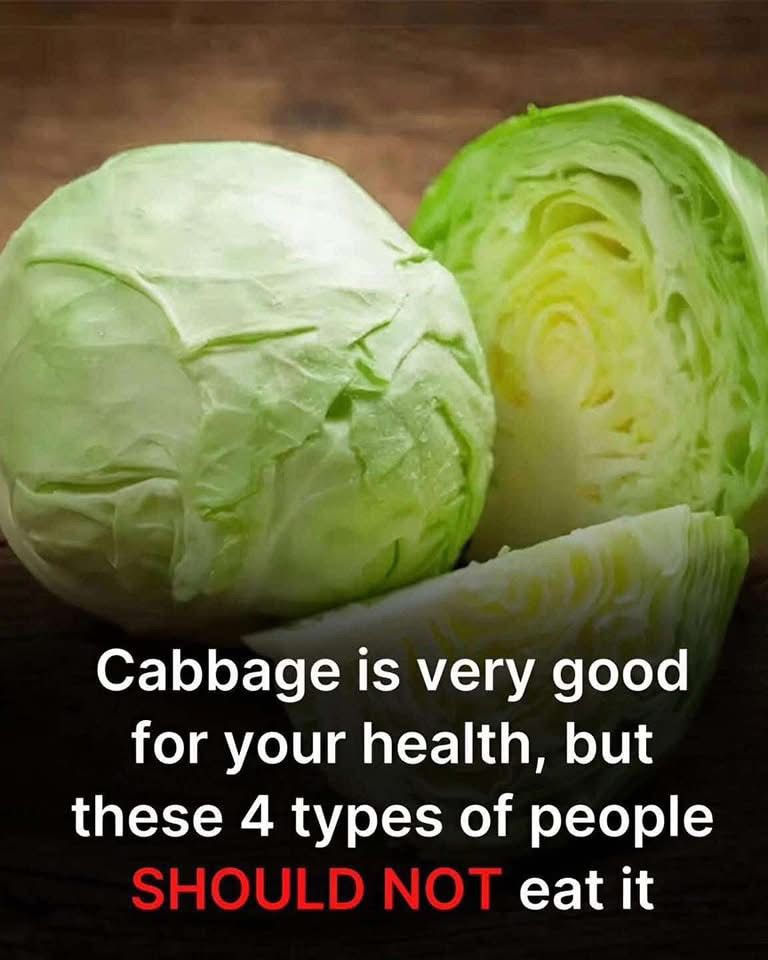1. People with Hypothyroidism

Cabbage and other cruciferous vegetables contain goitrogens, compounds that may interfere with thyroid function by inhibiting iodine uptake. Moderate consumption is generally safe for those with normal thyroid function. However, individuals with hypothyroidism or iodine deficiency should consider limiting their intake, especially raw cabbage.
Cooking cabbage reduces its goitrogenic content, making it safer for those with thyroid dysfunction or iodine deficiencies. Experts suggest that people with hypothyroidism avoid consuming large quantities, particularly in juiced form. They also suggest a dietary intake of no more than ½ a cup of cooked cruciferous vegetables a day.
2. People with Cabbage Allergy

Cabbage allergy is rare but can cause severe reactions, including skin rashes, respiratory symptoms, and gastrointestinal symptoms. Cross-reactivity with other Brassica vegetables (like broccoli and Brussels sprouts) and even certain pollen (such as birch) can occur. Individuals with a known cabbage allergy should strictly avoid cabbage and related vegetables, carry emergency medication if prescribed, and consult with an allergist for diagnosis and management.
ADVERTISEMENT
